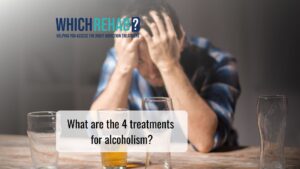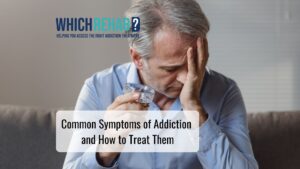If you’ve been exploring therapies for your addiction or that of a loved one, you might have come across Cognitive Processing Therapy, or CPT.
But what is Cognitive Processing Therapy and how can it help in the journey to recovery? In this article, we’ll explore the concept and purpose of CPT, and how it can be used to treat addiction relating to PTSD.
What is CPT?
Cognitive processing therapy (CPT) is a form of evidence-based treatment that is specifically designed to help individuals who have experienced traumatic events, particularly those who are struggling with post-traumatic stress disorder (PTSD). It falls under the umbrella of cognitive-behavioural therapy (CBT) and focuses on addressing and modifying the negative thought patterns and unhelpful beliefs that can develop as a result of trauma.
CPT is based on the premise that our thoughts and beliefs significantly impact our emotions and behaviour. Through therapeutic techniques such as Socratic questioning, individuals are guided to identify and challenge these cognitive distortions, ultimately leading to a reduction in distress and improvement in mental well-being.
The therapeutic process typically involves weekly sessions with a trained mental health professional, who utilises a treatment manual to provide a structured approach. During sessions, individuals are encouraged to share their traumatic experiences and the associated thoughts and feelings they have developed. Through session practice assignments, individuals learn to practice and apply these new cognitive processing skills in their daily lives.
Numerous studies have demonstrated the effectiveness of cognitive processing therapy in treating PTSD and related symptoms. Research led by Patricia Resick and her colleagues, as well as the National Center for PTSD, have consistently shown positive outcomes for various populations, including survivors of sexual assault, military personnel, and individuals affected by natural disasters.
How does CPT Differ from Other Therapies?
Cognitive Processing Therapy (CPT) differs from other therapies in its unique approach and techniques that specifically target the thoughts and beliefs associated with traumatic events. Unlike conventional methods, CPT focuses on challenging and changing unhelpful cognitive patterns that contribute to PTSD symptoms.
A key component of CPT is the use of Socratic questioning, a technique which helps individuals identify and challenge their negative thoughts and beliefs related to their traumatic experiences. By questioning the accuracy and validity of these thoughts, individuals are able to develop alternative, more adaptive ways of thinking. This process helps to reduce distress and improve overall mental well-being.
Numerous studies have shown the evidence-based effectiveness of CPT in reducing symptoms of PTSD. Research conducted by Patricia Resick and colleagues has demonstrated the positive outcomes of CPT in various populations, including survivors of sexual assault, child abuse, and military personnel. CPT has been shown to effectively reduce PTSD symptoms, including avoiding distressing reminders of the traumatic event, negative emotions, and cognitive distortions.
How does PTSD relate to addiction?

PTSD, or post-traumatic stress disorder, is a mental health condition that can have a profound impact on an individual’s life. It often arises after experiencing or witnessing a traumatic event, such as natural disasters, sexual assault, or combat in military personnel. One significant aspect of PTSD is its relationship with addiction.
PTSD and addiction frequently coexist, with studies showing that individuals struggling with PTSD often also have depression, substance abuse issues, or other anxiety disorders. This interplay between the two can be challenging to untangle and address effectively.
One factor that contributes to this relationship is self-blame. Many individuals with PTSD experience intense feelings of guilt and responsibility for the traumatic event they went through, even when it was beyond their control. This self-blame can lead to a vicious cycle, where individuals turn to substances as a way to cope with the overwhelming emotions and distress caused by the trauma.
Moreover, self-blame can keep someone stuck in the condition. The negative self-perception and belief that they are to blame can hinder their ability to seek help and engage in necessary treatment. Addressing and challenging these unhelpful beliefs is crucial in breaking the cycle of addiction and PTSD.
Recognizing the connection between PTSD and addiction is essential for treatment providers in order to develop comprehensive and tailored approaches. By addressing both the emotional impact of the traumatic event and the addictive behaviours, individuals can be better equipped to overcome the challenges associated with their mental health condition and substance abuse.
The good news is, multiple studies, including this one from Addictive Behaviors, have shown that CPT can significantly reduce the symptoms of both PTSD and depression, both of which can be triggers for addicts.
History of Cognitive Processing Therapy
Cognitive Processing Therapy (CPT) is an evidence-based treatment that was developed by Dr. Patricia Resick and her colleagues in the 1980s. It was initially designed as a therapy for adults who had experienced sexual assault and later expanded to include other types of trauma, such as combat experiences and interpersonal violence.
CPT is rooted in cognitive theory and draws from principles of cognitive-behavioural therapy (CBT). It aims to help individuals identify and challenge unhelpful beliefs and negative thought patterns that have developed as a result of the traumatic event. By addressing these cognitive distortions, CPT works to alleviate symptoms of PTSD and reduce associated distress.
CPT has been widely recognised as an effective treatment for PTSD and is considered a first-line treatment option by organisations such as the National Center for PTSD. It has been shown to be successful in reducing symptoms not only in trauma survivors but also in individuals with other mental health conditions, such as anxiety disorders, bipolar disorder and addictions.
Expansion to More Conditions in Recent Years
Cognitive Processing Therapy has expanded in recent years to treat a wider range of conditions, beyond its initial focus on post-traumatic stress disorder PTSD. Originally developed to specifically address PTSD, CPT has undergone adaptations and extensive research to apply its principles to other conditions as well.
While CPT was initially developed as an effective treatment for PTSD, mental health professionals soon recognised its potential applicability to other conditions. Researchers began exploring how the cognitive and processing-focused techniques of CPT could be utilised for different psychological disorders and trauma-based conditions.
Recent studies have shown promising results in using CPT to treat conditions such as anxiety disorders, bipolar disorder, and even substance abuse. The cognitive restructuring techniques and cognitive-behavioural interventions used in CPT have demonstrated their efficacy in challenging unhelpful beliefs and promoting a more balanced understanding of traumatic experiences, regardless of the specific condition.
It is important to note that ongoing research is needed to further establish the effectiveness of CPT in treating these additional conditions. Rigorous scientific studies and clinical trials are necessary to provide robust evidence and expand the application of CPT in various therapeutic settings.
Overview of Cognitive Processing Therapy

Founded on the principles of cognitive theory, CPT focuses on helping individuals process and reframe their thoughts and emotions related to traumatic events. As mentioned earlier, by challenging unhelpful beliefs and thought patterns, CPT aims to promote a more balanced understanding of past experiences and reduce the negative impact of trauma.
The therapy consists of weekly sessions with a mental health professional, during which individuals engage in various cognitive restructuring techniques, including Socratic questioning, and complete session practice assignments.
Add Your Heading Text Here
CPT sessions can be delivered in both individual and group formats, providing flexibility in treatment options.
In individual sessions, CPT typically consists of twelve structured 50-minute sessions. These sessions are conducted once or twice weekly, allowing for regular and consistent progress. During these sessions, the therapist guides the individual through various treatment components, including psychoeducation, learning cognitive techniques, and addressing unhelpful beliefs.
Furthermore, CPT involves the completion of out-of-session practice assignments. These assignments encourage individuals to apply the skills and strategies discussed in therapy to their daily lives, fostering long-term change and symptom reduction.
Group sessions in CPT can take on three different formats. The first format involves the inclusion of a written trauma account, where individuals write a detailed narrative of their traumatic experiences. The second format omits the written trauma account but includes the practice of cognitive techniques. Finally, the third format excludes both the written trauma account and cognitive techniques practice.
The structure and processes of CPT sessions, whether conducted individually or in a group, aim to address the negative emotions, cognitive distortions, and unhelpful beliefs associated with traumatic events. By combining cognitive techniques and therapy assignments, CPT provides individuals with the tools and support necessary for recovery from PTSD and related symptoms.
How to get into a CPT program
If you or someone you know is struggling with addiction and post-traumatic stress disorder (PTSD), getting on a Cognitive Processing Therapy (CPT) program can be a helpful step towards recovery. At Which rehab we focus on people struggling with addiction with a range of treatment options, including therapies such as CPT.
Our compassionate team will guide you through the process and help you find a suitable program that meets your specific needs.
By taking the step to get on a CPT program through us at Which Rehab, you are actively seeking effective treatment for both addiction and PTSD.
Remember, recovery is possible, and with the right support, you can start on the path towards healing and well-being.
Get in touch today to start your journey to recovery.
Related articles
CPT FAQs
Cognitive Processing Therapy (CPT) is an evidence-based method of psychotherapy that was designed to help people process and cope with traumatic experiences. CPT was developed by psychologist Judith Herman in the 1980s, and it is used to treat a variety of mental health issues related to trauma, including post-traumatic stress disorder (PTSD).
CPT helps people understand how their thoughts, feelings, and behaviours are related to their traumatic experiences. The therapist helps the patient identify patterns of thinking that keep them from processing the trauma and encourages them to challenge these thoughts. CPT also includes education about trauma-related mental health issues, such as PTSD, anxiety, depression, and anger.
Cognitive Processing Therapy (CPT) is a short-term, evidence-based treatment for Post-Traumatic Stress Disorder (PTSD). It was designed to help individuals process and resolve current symptoms related to a traumatic event. CPT is usually conducted in 12 weekly sessions lasting one hour each, although it can vary depending on the individual. The therapy requires active participation from both the patient and the therapist.
Cognitive Processing Therapy (CPT) is a form of psychotherapy that can help people who have experienced traumatic events or have post-traumatic stress disorder (PTSD), but also those with related mental health conditions such as depression, substance abuse issues, or other anxiety disorders. CPT works by helping individuals identify and challenge negative thoughts and beliefs associated with the traumatic event, as well as the associated emotions. This can help them process trauma in a healthy way while learning more effective coping skills.
Cognitive Processing Therapy (CPT) and Cognitive Behavioral Therapy (CBT) are both forms of psychotherapy that focus on changing thoughts, emotions, and behaviours in order to improve psychological health. However, there are several key differences between the two therapies.
First, CPT focuses on how traumas affect a person’s cognitive processing. By exploring the traumas or events that occurred and identifying patterns of thinking or behaviour that result from them, CPT helps individuals process the trauma in a healthy way.
CBT, on the other hand, is more general and focuses on helping individuals identify, challenge, and change maladaptive thoughts and behaviours. CBT can be used to treat a wide variety of mental health issues, including depression and anxiety.






